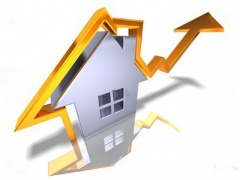
Last week, JLL and Tasweek analytical agencies presented their third quarter Dubai property prices researches. Their common verdict indicates that the average rate of return on investment in Dubai is increasing due to lower prices in the sales segment and prices stabilization in the lease segment.
Apartment sales prices in the year third quarter in Dubai fell by 3% compared with the previous quarter and by 11% year-on-year, while average rental price stayed almost unchanged having declined marginally by 1% both year-on-year and quarter-on-quarter, JLL experts claim in their latest report. And villa and townhouses prices saw a decline of about 3% in a quarter and 7% in year to October, while the average sales sector prices indicator witnessed a decline of about 12.7 per cents year-on-year, according to Tasweek consultancy estimates.
Overall buyers’ activity also saw a decrease in Q3, Tasweek says in its report. The total number of real estate transactions in the third quarter declined by an average of 64% compared to the year’s first quarter. But it is worth mentioning though, that the third quarter includes two hottest summer months in Dubai plus September, and during that time all business activity in Dubai usually faints.
But generally, Tasweek experts have called the situation in the Dubai property market quite stable and agreed with JLL experts in their relatively positive outlook for the future real estate industry development in Dubai. As for the prices, in the third quarter Dubai apartments were put on sale at an average price of USD 3147 per square meter, while villas were marketed at a price of USD 3545 per square meter.
According to Tasweek, 26,100 new apartments and 2,400 villas are planned to handover in 2016 in Dubai, and another 5,000 units will be added to the Dubai real estate market by 2019 in 18 new off-plan real estate projects launched in the second half of 2015.
This situation makes real estate property the most profitable investment now in Dubai, as the increase in demand for rents together with the fall in sale prices have jointly pumped up the average yield returns in Dubai by 9.9% to 7.42 per cents, Knight Frank said.
Thus, Dubai has once again proved its ability to turn even that, what at first appeared the worst tendencies, into its main advantages.







